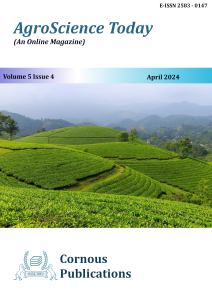The certification of agricultural commodities has become increasingly crucial in global exports, particularly for producers navigating complex import regulations and standards imposed by destination markets. Certification serves as a vital assurance that the production process of a commodity complies with specific norms or standards, facilitating trade between geographically separated producers and consumers. There are three primary methods of verifying compliance: first-party verification, wherein companies internally adhere to standards; second-party verification, involving companies instructing suppliers to comply; and third-party verification, where external agencies ensure supplier adherence. In India, certification is mandatory for exporting various products such as fish, dairy, poultry, meat, and honey, typically based on Food Safety Management Systems. Furthermore, European and US markets impose quality standards on fresh produce, specifying criteria like size, shape, defects, color, and organoleptic qualities. Such certifications not only ensure safety but also align with stringent quality requirements demanded by discerning international buyers. This article examines the significance of certification in agricultural exports, emphasizing its role in meeting diverse market standards and enhancing trade viability.
Melatonin, also known as N-acetyl-5-methoxytryptamine, is a biological indolamine with important plant biology consequences. Its synthesis happens naturally in plants, which contributes to its potential use in promoting sustainable agriculture. Melatonin, which acts as a modulator as well as a bio-stimulator and plant growth regulator, has a wide range of beneficial effects for plants. One of its important functions is to increase a plant's resistance to biotic and abiotic stressors. Drought, waterlogging, severe temperatures, salt, and alkalinity are examples of stressors. This article emphasizes the significance of melatonin-synthesizing microorganisms and dives into the role of exogenous melatonin in giving abiotic stress tolerance. It also investigates melatonin's reactivity to microorganisms and its role in phytoremediation processes.
As a part of Study tour program concerning the course HOR 201, this manuscript reveals the History, Growth and Development of Tea Factory at Ooty (Dodabetta). There we had a good exposure to the processing of Tea from the step of harvesting to packaging. There we learned about the History, Growth, and Development of Tea. In addition, we learned about the Origin of Nilgiris Tea and the foundation of railways for the transportation of tea. This manuscript covers briefly the history and development of tea.
Storage insect pests and their infestation on crop seeds are of great concern in quality seed production programs. Damage caused by these insect pests is absolute and irrecoverable, since the pest feeding causes qualitative as well as quantitative losses, such as seed weight loss, loss of seed viability due to poor germination capacity of seeds, poor seedling vigour, invasion by secondary pathogens etc., leading to crop loss. Essential oils extracted from different aromatic and medicinal plants especially act as an insecticide against these storage pests and are considered as an eco-friendly pest management option. Hence, essential oil extracted from such plants can offer an effective solution for controlling storage pests with minimal health impacts and contradicting insect pest resurgence issues.
Cow pea (Vigna unguiculata) is a long bean with thin pods and is commonly grown throughout India and belongs to the family Fabaceae. Cowpea is cultivated in India for grains, vegetables and haulms as fodder. To sow one hectare area a quantity of 15 kg of seeds are required. The seeds should be treated with Rhizobium bacterial culture 600 g before direct sowing. Ripe and dry pods are harvested at half to two thirds of maturity by manually for seed collection. The seed production fields are to be inspected by seed certification agencies at appropriate stages of the crop growth as per seed and field certification standards. The cloth bags are used for storage of small quantity seeds, gunny bags are used for storage of large quantity and polythene bags are used for long term storage. The seeds are treated with one per cent of activated clay by weight of the seed or two grams of carbendazim 50% WP for one kilo gram of seed and combination of five parts of calcium hypochlorite + four parts of lime + one part of leaf powder of Albizzia amara @ 3 g/kg of seed. These pre-treated seeds are stored for eight months in cloth bag and 16 months in water proof bags without bruchid infestation. Few attempts were made to develop micro-propagation protocols in cow pea and there is no commercial tissue culture techniques followed.
